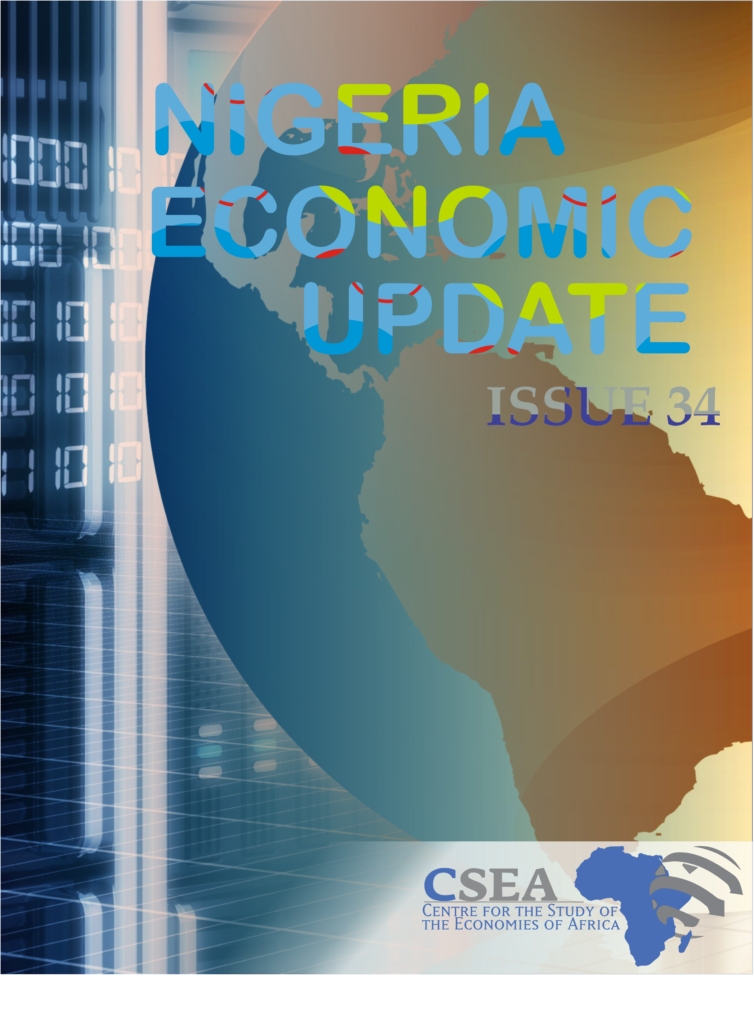Total capital imported into Nigeria declined in 2018Q2, compared to 2018Q1 – the first quarterly decline since 2017Q1. At $5.5 billion in 2018Q21, capital importation dropped by 12.5 percent from the $6.3 billion recorded in the preceding quarter. The quarter-over-quarter decline may be attributable to decreases in both portfolio and other investments, which fell by 9.8 percent and 24.1 percent respectively. However, portfolio investment maintained its leading role in contributing to total capital importation, at $4.1 billion or 74.5 percent. On the flip side, FDI continues to be the least contributor since 2017Q1, and accounted for only 4.7 percent ($264.1 million) in the review quarter. The overall lower capital inflows, particularly portfolio investments, puts into perspective the recent persistent downward trend in Nigeria’s capital and money markets.
Macroeconomic Report & Economic Updates

September 4, 2018
Nigeria Economic Update (Issue 34)
Total capital imported into Nigeria declined in 2018Q2, compared to 2018Q1 – the first quarterly decline since 2017Q1. At $5.5 billion in 2018Q21, capital importation dropped by 12.5 percent from the $6.3 billion recorded in the preceding quarter. The quarter-over-quarter decline may be attributable to decreases in both portfolio and other investments, which fell by […]
Read →
Related
Nigeria Economic Update (Issue 45)
Recently
released report by Nigeria Extractive Industries Transparency
Initiative (NEITI)shows a significant decline in revenue
allocation across the three tiers of government for 2016H1 (January to June). Specifically, total disbursements dropped
(year-on-year) by 30.45 percent to N2.01 trillion in 2016H1. The
drop in revenue allocations is accountable to the decline in both oil and
non-oil revenue. While lower oil revenue was triggered by the drastic fall in
oil price and production in 2016H1, lower non-oil revenue was driven by the decline
in tax revenue occasioned by contraction in economic activities in the review
half-year.
Should Nigeria Establish A Sovereign Wealth Fund?
This paper explores the issues relating to the establishment of a Sovereign WealthFund (SWF) in Nigeria consistent with best practices. Experience with established SWFssuggests that successful oil- based funds tend to be underpinned by a sound oil revenuemanagement framework. The paper thus discusses the underlying issues of oil revenuemanagement, the policy choices and SWF implementation issues.
Economic Growth And Job Creation (2012 Q3 To 2013 Q4)
This report examines the pattern of
economic growth and employment generation in Nigeria based on quarterly data.
It also analyzes the quality of job creation, dynamics of output and employment
and establishes the link or absence thereof between economic growth and labor
demand.
